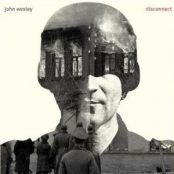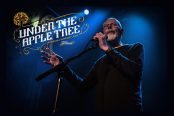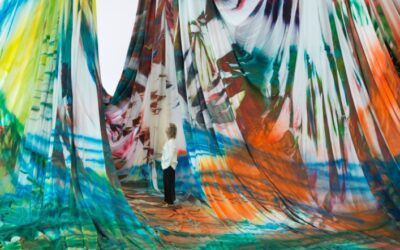[dropcap style=”font-size:100px; color:#992211;”]O[/dropcap]nce it’s pointed out, the heft of truth behind the headline is difficult to downplay.
Whilst East Coast drama leans heavily on the red-cheeked O’Mahony stereotype, black police officers in Hollywood blockbusters do seem to display more roll-eyed, yes mass’ah comedic tropes than would be considered acceptable in another role. Is it that the badge and gun denote a level of authority that is thence considered safe to lampoon?
The presence of African-American police officers has been shown to increase the perceived legitimacy of police departments; however, their depiction in film may play a role in delegitimizing African-American officers in real life, both in the eyes of the general public and the African-American community.
In their recently released study, Sam Houston State University associate professor of criminal justice Howard Henderson and Indiana State University assistant professor of criminology and criminal justice Franklin T. Wilson found that African-American city police officers rarely have been depicted as leading characters in theatrically released films over the first 40 years of the cop film genre, and when they are, African-Americans are overwhelmingly portrayed as comedic entertainment, while white officers are not.
“The Criminological Cultivation of African-American Municipal Police Officers: Sambo or Sellout” was published in Race and Justice, the official journal of The American Society of Criminology Division on People of Color and Crime.
[quote]many United States citizens are
not ready to accept an African-American
in a serious authoritative role[/quote]
“Given the racially charged nature of this past year with instances like the Paula Deen case, the Trayvon Martin verdict, the recent ‘Loud Music Case’ of Michael Dunn, among others along with the profit-driven nature of entertainment media, I fear the pattern we have discovered may not be a matter of negligence on the part of Hollywood,” said Wilson, who led the research. “Instead, it may be a reflection that many United States citizens are not ready to accept an African-American in a serious authoritative role.”
The study of 112 films revealed that white officer depictions dominated the genre, appearing in the lead or joint-leading roles in 89 percent of the films; African-American officers were depicted in 19 percent of the films, while other minorities only appeared in 3 percent of the films.
While the study examined films released after 1971, arguably the start of the modern cop film genre with Dirty Harry, 95 percent of African-American depictions did not occur until after 1987.
In addition to an apparent requirement of a white costar to justify an African-American in a leading role, the study revealed that 52 percent of African-American officer depictions portrayed the officer serving as comedic entertainment. White officer comedic portrayals resulted in 17 percent, which is reduced to only 3 percent if excluding films in which the white officer is teamed with a minority officer or minority civilian.
“Most people view films one at a time and do not consider depictions as a whole; we see individual scenes that may make us laugh in the moment, but what we do not see is how overall these depictions are eerily similar to, if not the continuation of, the presentation of African-Americans as comedic outlets that date back to the slavery experience,” Henderson said. “This is what sets our study apart”.
“Minstrel shows of the mid-1830s, as well as the Stepin Fetchit character of film in the 1920s and 1930s, regularly used derogatory comedic depictions of African-Americans for white entertainment.”
The study also revealed that while several films touch on the struggle many African-American officers face in maintaining a balance of loyalty to the  African-American community and to the police force, only four films directly addressed the issue. Much of the time, the officer is portrayed as having to choose between either selling out the African-American community or quitting the police force.
African-American community and to the police force, only four films directly addressed the issue. Much of the time, the officer is portrayed as having to choose between either selling out the African-American community or quitting the police force.
The researchers note that in the film Shaft, Samuel L. Jackson’s character captures this dilemma when he says that he is “too black for the uniform, too blue for the brothers.”
“We do not know if such portrayal patterns have an impact on recruitment, retention and public perceptions of African-American city police officers yet, but it certainly points to a need for a closer examination,” Henderson said.
Source: Sam Houston State University
The full study is available online at raj.sagepub.com/content/early/2014/02/05/2153368713517396.abstract.
Image: freedigitalphotos.net/digidreamgrafix

Some of the news that we find inspiring, diverting, wrong or so very right.



















